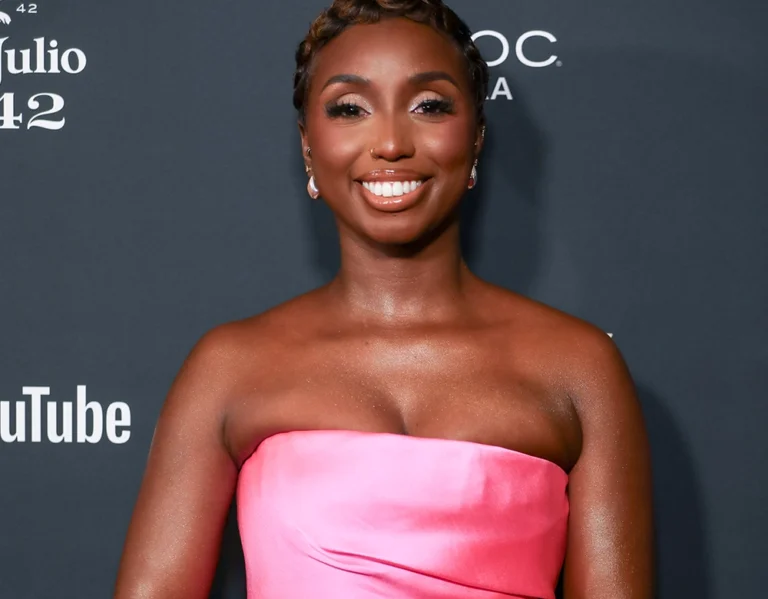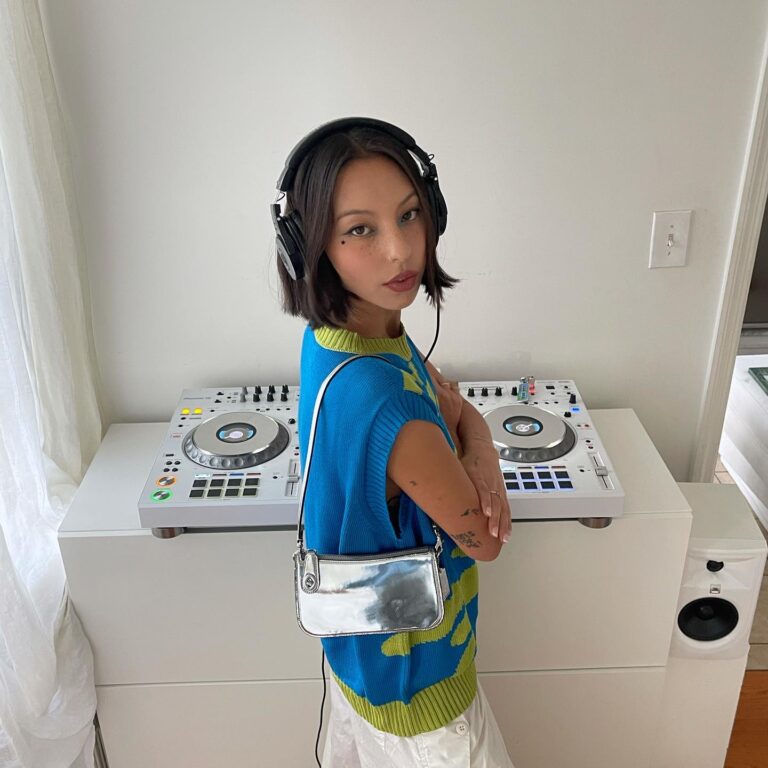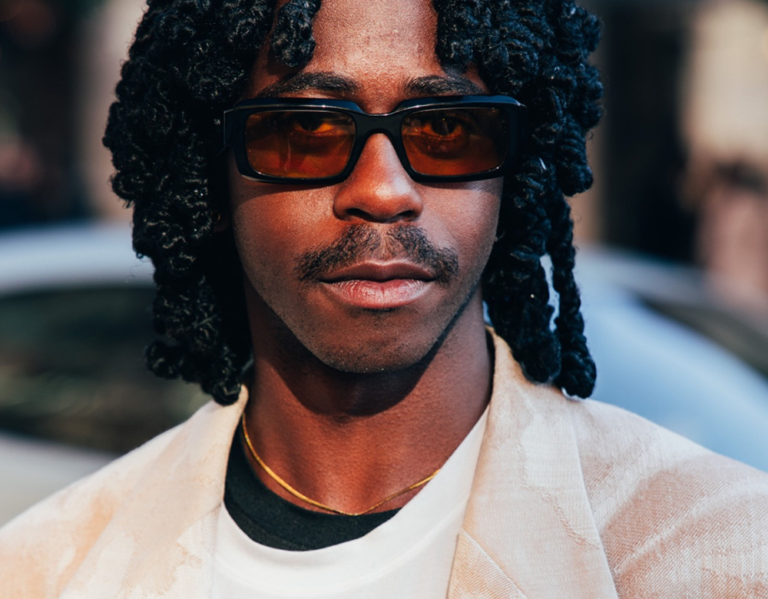Adébayo Bolaji, Artist, Painter & Actor, London
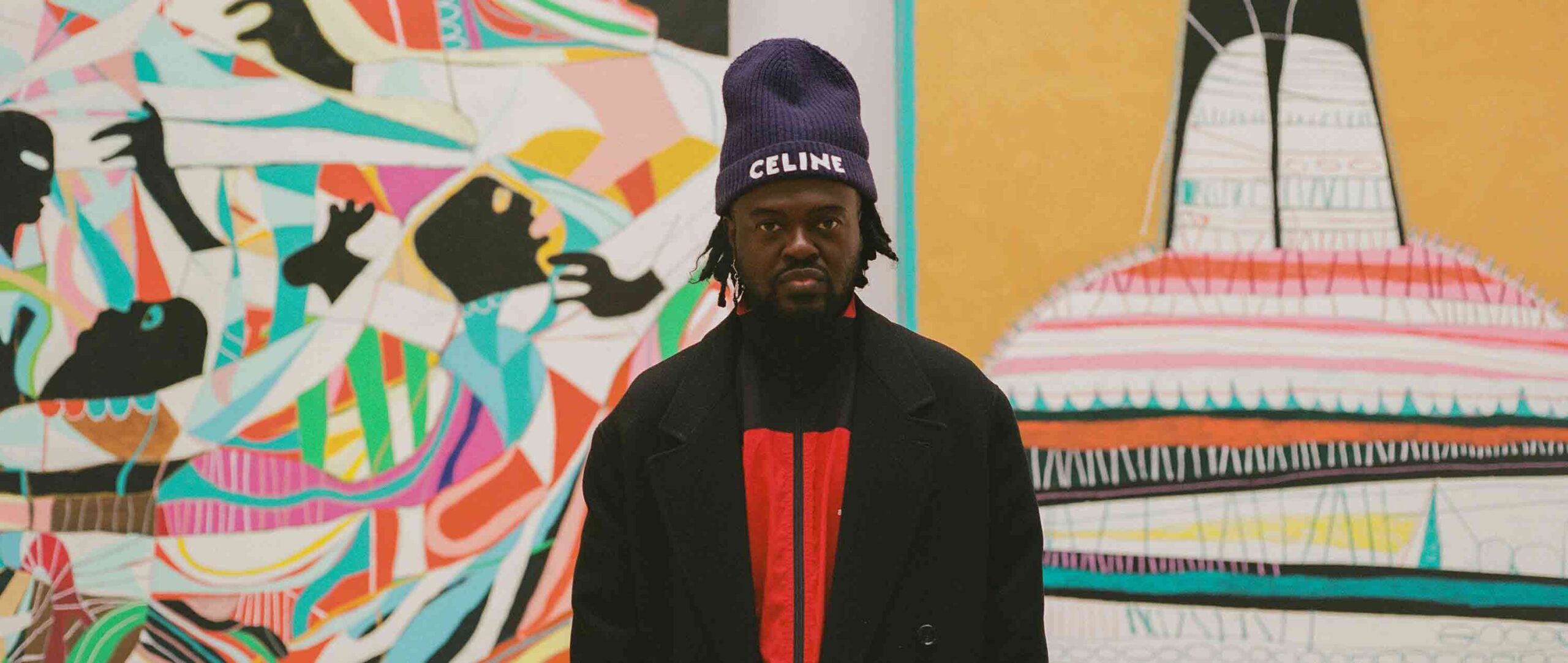
Hi Adé, could you introduce yourself and who you are?
Who am I? Well, a helpful title for people is an artist. I would say I’m a painter but I would also say a visionary. I have an idea of how I see the world and what I feel my position within that is, and I use the tool of painting to communicate it. I’ve also been a child actor, a lawyer… I’ve tried many things.
I’m also very passionate about other people finding their own voice. I’m very passionate about building that, so I look for spaces that have potential. I look for individuals that have potential by looking at problems. I want to solve them. Without sounding really cliché, it’s about uplifting others. Being an artist is definitely abstract, so I think it’s a very easy thing to hide under. I think it’s okay to be bold and say ‘visionary’ because that’s something that I see.
I wanted to speak to you about confidence and having the confidence to start over again. Where do you find this comes from?
I remember I had an exhibition in quite a high end gallery in Oxford Circus around 2017 or 18. A friend of mine – probably 15 years my elder – he asked me, “How did you have this guidance and confidence to come into this space?” And I thought, what does he mean? He goes on to explain that he’s speaking from a different generation where he wouldn’t even know where to begin to walk through a particular space. At that moment I didn’t understand that, but with the gift of hindsight I see that, based on my friend’s metric of confidence, I am considered to be a confident person. I feel that I have had different levels of confidence, but it’s something that you have to nurture because confidence can easily become arrogance. It’s important to nurture yourself and by doing that you can then kind of understand what you have, why you have it. Self knowledge is everything to an artist.
"Self knowledge is everything to an artist."
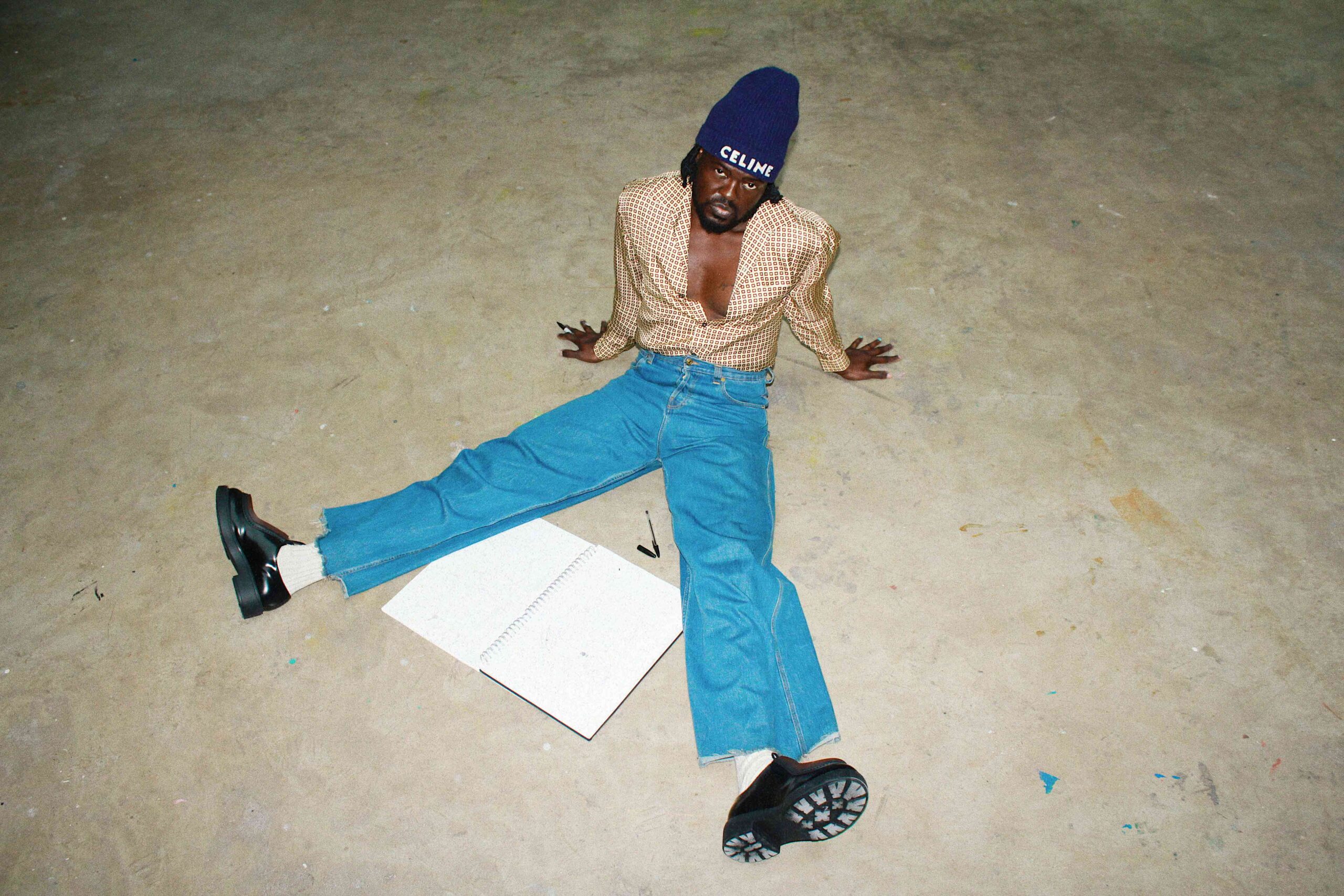
How does that philosophy weave into your practice today?
Freedom. People have said that all my work feels very free. My earlier works had a lot of scribbles and scratch mark making, which can give the illusion of freedom. Now I think freedom is a sense of just when a work feels very confident in itself. For example, it can be the way I use a particular kind of material which someone else may shy away from.
I think that when you know yourself you know what works for you, and knowing yourself is very much rooted in confidence; a sense of just being okay with who you are celebrating. That acceptance gives you a sense of freedom which is rooted in an ability to make work and be consistent. If you think about it logically, how are you able to do something consistently? Because there’s a sense of knowing yourself which is rooted in the kind of ‘where do you see yourself’ rhetoric… Again, vision. How you see the world where you want to be, which then helps your decisions.
What I’m taking from this is you’re putting out quite a lot of practical skills that an artist needs to become confident or become a painter, an actor, a writer. What skills do you feel that you’ve learned?
Absolutely. Artists can struggle with a lack of practical skills and, to some degree, that is the fault of art school. Not because art school is bad but, more often than not, the space that you are in is highly conceptual but the real world is not a conceptual place. The world is the opposite – very grounded and practical. The bailiff will come knocking at your door two weeks later. There’s nothing conceptual about that.
"I think freedom is when a work feels very confident in itself."
I know your career has had an interesting trajectory through many iterations and forms. Can you explain what that was like?
I was a child actor and the theatre space was a brilliant first teacher for me because, in one way, it has all the elements of every kind of art form. In a practical way, through being in that space for five years, I was able to do the West End shows, travel the world, perform at Edinburgh Festival, things like this. It was a struggle for me because my background is a traditional West African background, which was like a real clash with my family. My parents loved what I did but it wasn’t seen as a serious profession.
There was that pressure to go into more serious subjects like law or be a doctor. After my father and I had a huge fight I ended up studying Law, which took me away from the acting world. I became the kind of student that would keep my head down. I wouldn’t look at anyone. Depressing years, really, because I didn’t want to be there. And I would clock in clock out, again and again, until I finished that law degree and was working in the city near Canary Wharf. These were really, really, really dark, dark years because I just was in a job that I hated. The kind of culture that I came from was very much a ‘respect your elders’ kind of culture. It’s very, very deep rooted to listen to what your elders say.
I remember my dad said one thing that stayed with me. When I’d said that acting gave me the potential to make loads of money, he replied, “Do you think I care about money? You’re a young black guy. When they see you, they want you to jump and dance and tap dance and perform. When you can speak eloquently to hold a room and make it go silent, that’s what I am concerned with.”
Growing up with mixed parents, I can understand that pressure. What made you move away from law and into painting?
I was struggling with my health, getting seriously bad headaches. It was painful to swallow food, skin was peeling off. It was horrible. I had to go to the hospital but no one could tell me what was wrong with me. Everything checked out fine. They couldn’t explain what was happening until I was asked, ‘Am I stressed?’ After seeing me in that state, my mum said she wanted me to be happy and didn’t care what I did. That changed everything and freed me.
I began again, working in a tiny bookshop in South Acton that sold Philosophy and Theology and I was so content. After a while I started acting again at the Central School of Speech and Drama and worked professionally for almost eight years, but there were instances where it was hard. I nearly got kicked out because I didn’t have enough money to pay the deposit on time and walked around with a fake ID card to get into lectures. This is when I learnt the power of community and asking for help. My mum’s local church raised the money to help get me in, and the kids I worked with during summers at the World Road Show, a community group in Acton, raised the money for my deposit.
Then the headaches returned and the only thing that seemed to ease it would be to get a pen and to doodle my frustrations out. I was always restless but this was a release, in a private way and only for me. As time went on I realised that I was not happy. I could feel that acting, this thing that I love, I don’t love it anymore like I used to. One day I had the urge to grab a pen to write out my frustrations and, as I’m writing, these scribbles were coming out and all these weird faces. The next day it was almost like I heard a voice in my spirit telling me to do this. As I got back to London, I bought paint and began. And, for some reason, this person in me came alive and knew exactly what to do. It was like being in your zone.
I knew I wanted colour. I knew the painting was going to be visceral and it poured out of me. I was in the house at the time and my housemates saw it and he was like, “Whoa, did you just draw that?” My painting was staring back at me, smiling because it all made absolute sense. I just went up to the bathroom, bawling my eyes out crying. It was a huge release. From there the only way I can describe it is that it was like the headaches are almost me outside myself trying to get in, saying let me in. We want to play, we want to express ourselves, and me not knowing how I would even do that. Looking for the tools to do that.
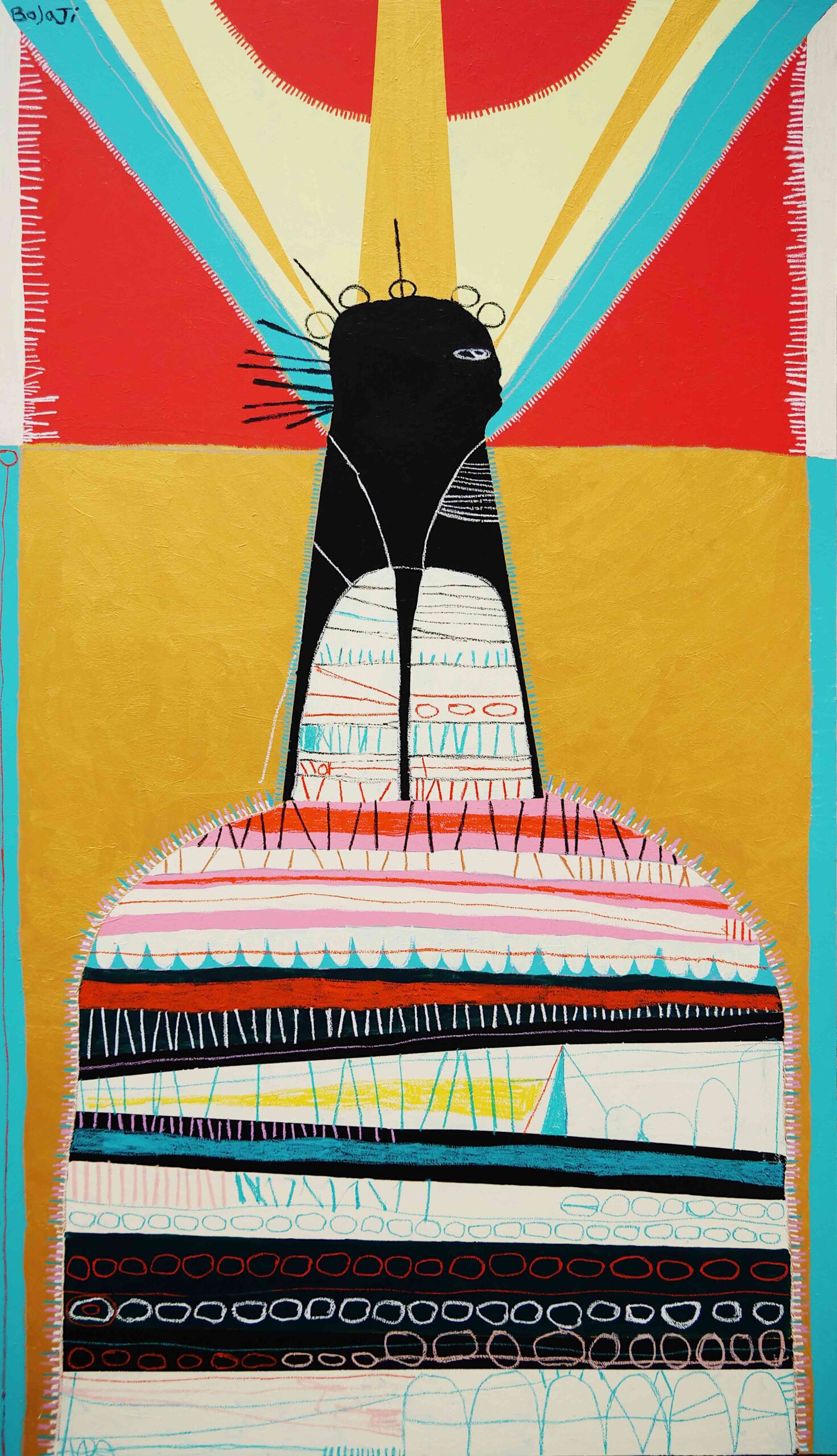
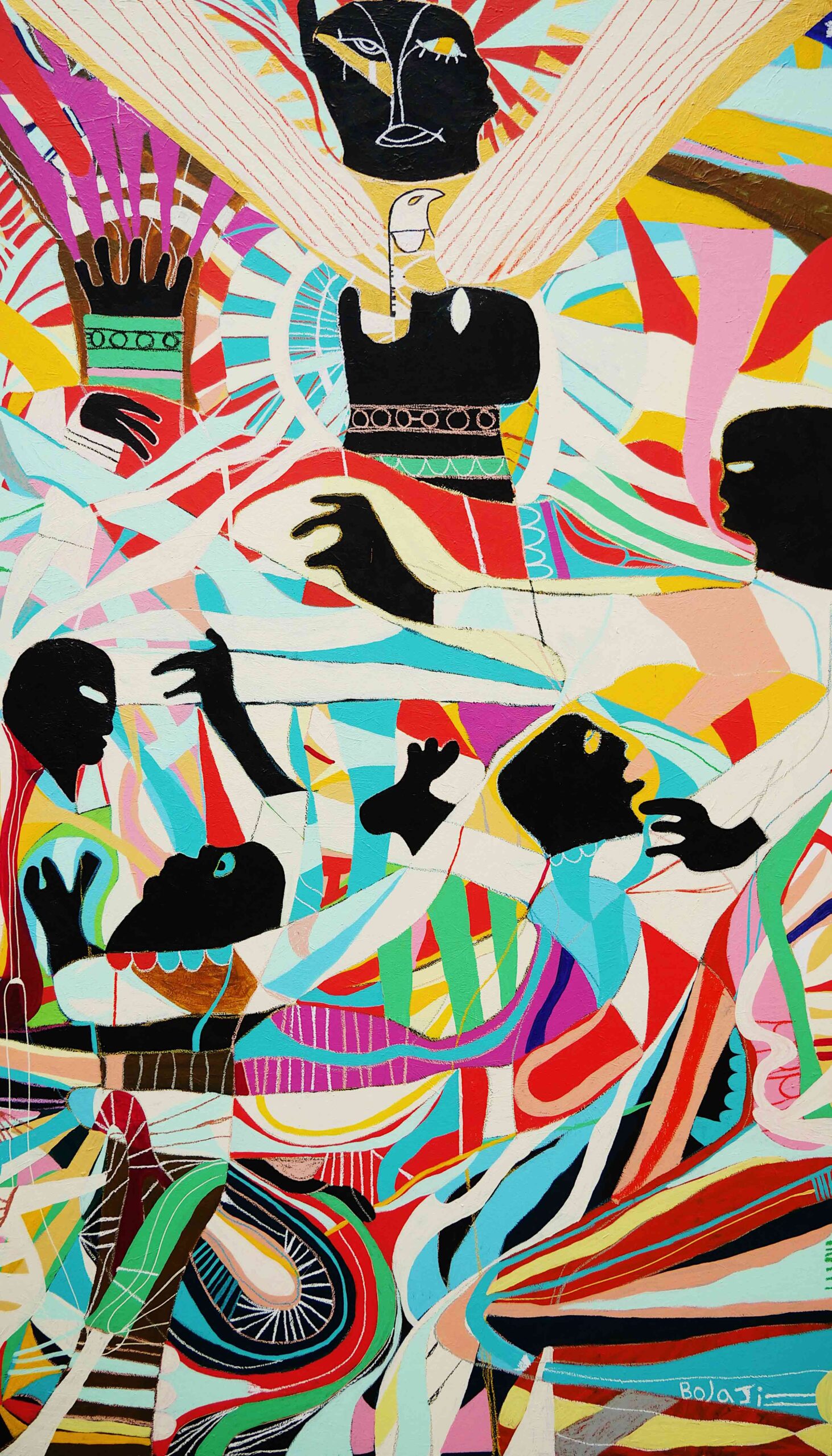
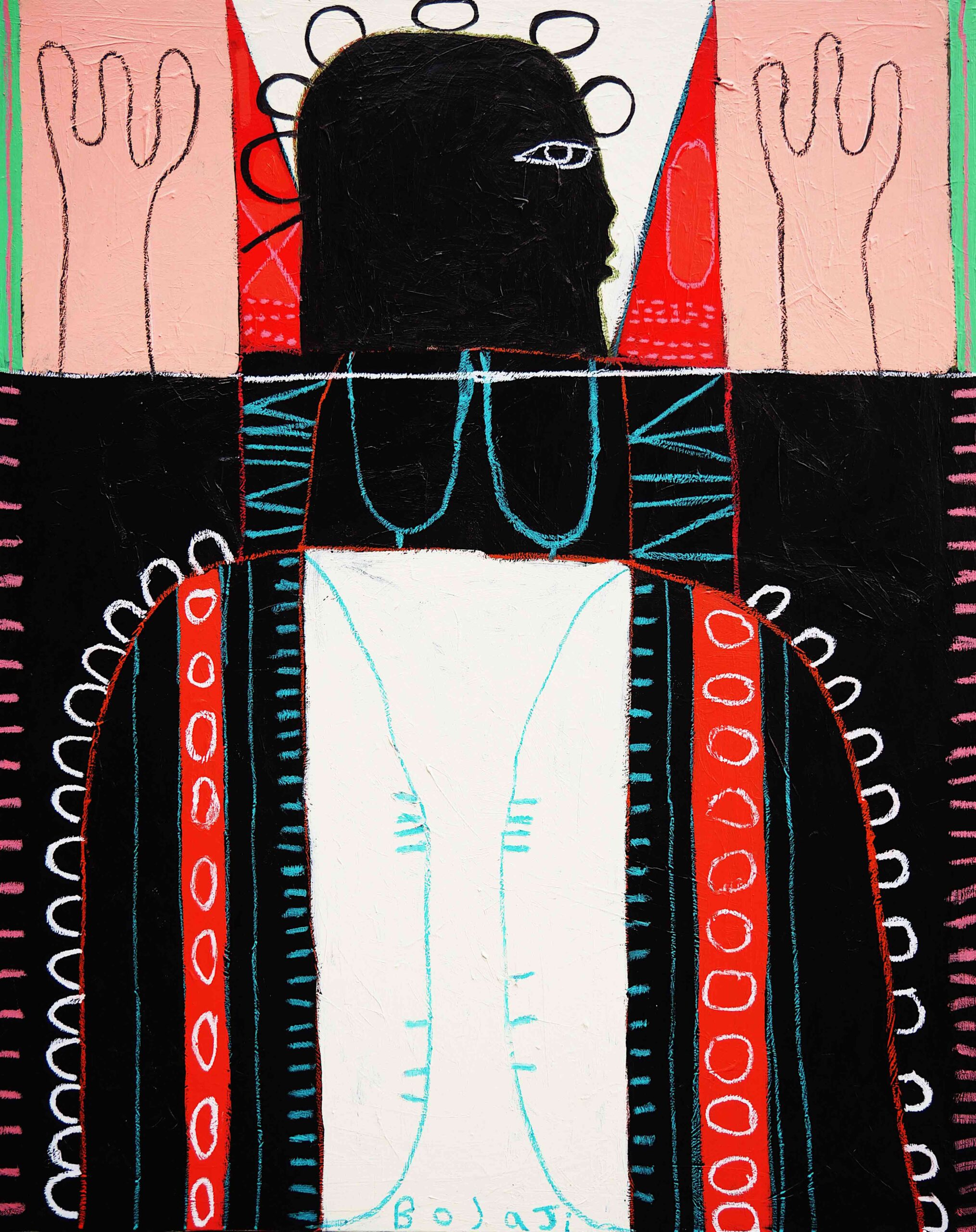
You’ve shared quite raw and emotional stories about your journey. What is it like today, to wake up and begin your day?
I have a sort of daily ritual of drawing. Every morning, I create one drawing. It makes me enter that space frequently and is able to push me to finish the work, irregardless of if it is good or bad. This way I don’t neglect that practice. I think it’s a useful piece of advice for those wanting to paint. Do so frequently, without being attached to what comes out of it. I’m in the studio for a deliberate six hours a day, as that’s what works for me.
"You have to decide what you want for yourself"
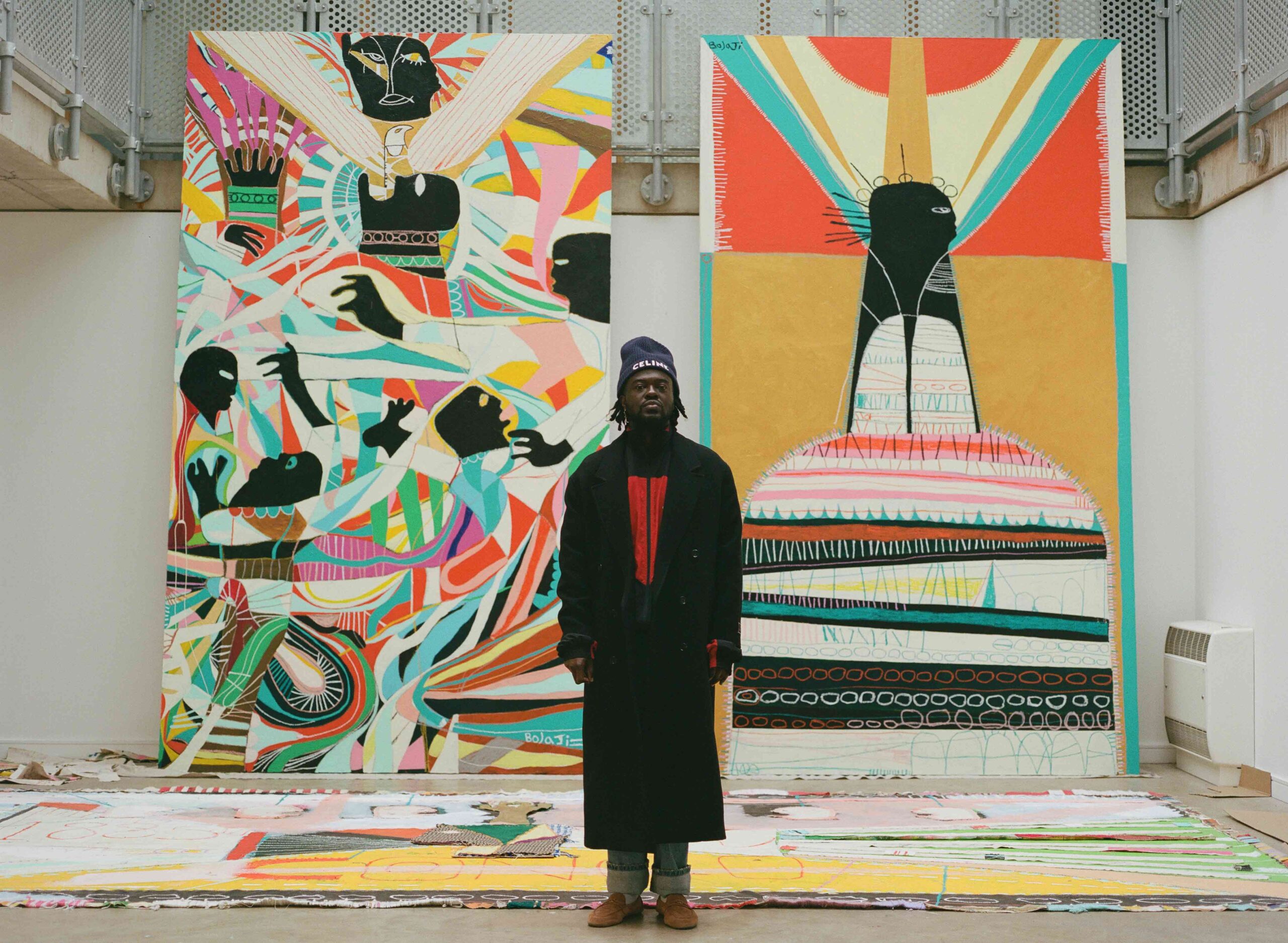
Touching on that advice, is there anything else you feel it is important to share?
I use Instagram a lot to build up my network and my relationships with other people. There’s no need to overcomplicate it, the key thing is deciding for yourself. What is it that I want for myself? I think that is the key first step. You have to decide what you want for yourself. What’s your vision, where do you want to go? And then allow that to dictate, to carve out how you particularly spend your day and your time? Do not be afraid to ask yourself, what is it I am seeking?
LATEST THAT MAY INTEREST YOU


